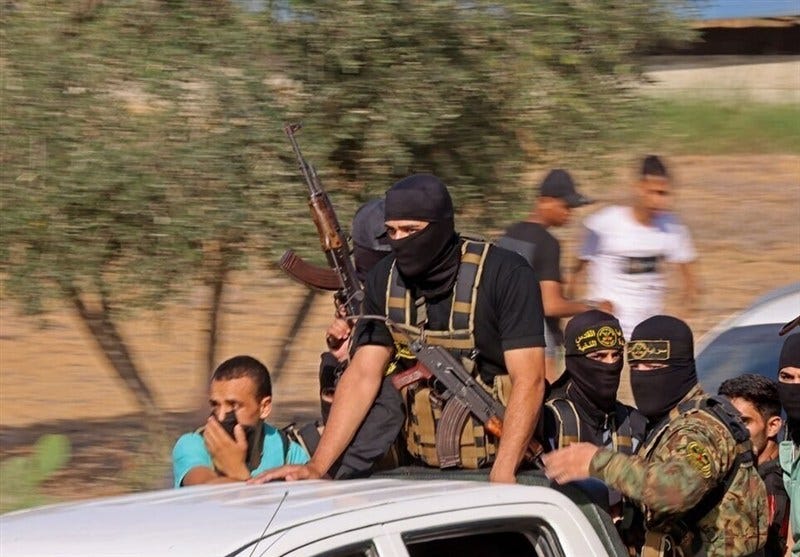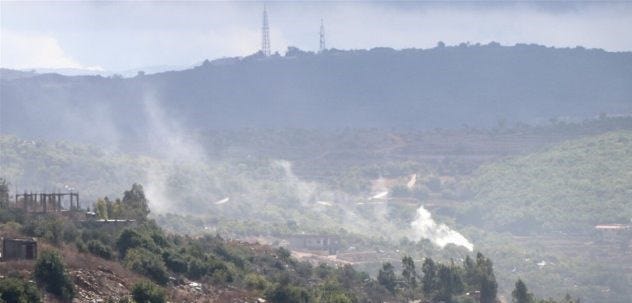Operation Al-Aqsa Storm: A War That Was Inevitable
An analysis of why the Al-Aqsa Storm was not a miscalculation but a preemptive strike that changed the course of history
Palestine, PUREWILAYAH.COM - Contrary to certain analyses portraying Operation Al-Aqsa Storm as a strategic miscalculation, numerous indications suggest that even if this operation had not occurred, war between the Zionist regime and the Axis of Resistance was inevitable.
The operation, therefore, represented a preemptive strike aimed at altering the balance of power and redefining the rules of engagement.
As the world marks the second anniversary of Operation Al-Aqsa Storm, discussions around its outcomes and consequences have resurfaced, particularly in light of Hamas’s recent preliminary acceptance of Donald Trump’s ceasefire proposal for Gaza.
This development has reignited debate: Was the operation truly beneficial for Palestine and, by extension, for the Resistance front
?
Heavy Price and Lingering Questions
After two years of relentless warfare, more than 70,000 Palestinians have been martyred, over 200,000 wounded, and 90 percent of Gaza lies in ruins, with vast areas now under occupation by the Zionist regime.
Adding to the toll, Hezbollah’s entry into the conflict in solidarity with Hamas led to devastating consequences, culminating in the martyrdom of Sayyed Hassan Nasrallah, Secretary-General of Hezbollah, in September 2024 — one of the most significant losses for the Resistance axis.
Some critics have even claimed that the fall of Bashar al-Assad’s government on December 18, 2024, was among the ripple effects of Al-Aqsa Storm, arguing that the collapse of Damascus stemmed from blows dealt to Hezbollah on the Lebanese front.
Challenging the “Miscalculation” Narrative
Two central arguments counter the narrative that the October 7 operation was a reckless move:
1. Political Context: Defying the “Normalization” Trap
The first dimension of the operation was political. Al-Aqsa Storm emerged as a response to the growing normalization of ties between Arab states and Israel, especially Saudi Arabia.
For Hamas, it was a desperate yet deliberate act of survival — an effort to escape a slow death under two decades of war and economic blockade.
It was no secret that such a large-scale attack would provoke an extreme reaction from Israel. The Resistance understood the grave risks involved. Nevertheless, Hamas chose to take the initiative, to rewrite the rules of the game rather than be suffocated in silence.
Despite the immense suffering, the operation succeeded in reviving the Palestinian cause, thrusting it back into global consciousness.
Today, from North America to East Asia, the streets of countless cities are filled with mass demonstrations supporting Palestine. Even in Europe, traditionally aligned with Israel, numerous governments have now recognized an independent Palestinian state — a political shift unimaginable before October 7
.
2. Military Context: A Preemptive Strike, Not a Suicide Mission
The second perspective is military and strategic. Al-Aqsa Storm was not a suicidal gamble; it was a preemptive strike launched before the Resistance could be caught off guard.
According to senior Hamas officials, Israel had planned assassinations of Hamas leadership at the earliest opportunity. Yet evidence indicates that Tel Aviv’s ambitions extended beyond Gaza — targeting Hezbollah in Lebanon as well.
A documentary broadcast by Israel’s Channel 12 revealed that intelligence units connected to Operation Pageri had already infiltrated Lebanon in September 2023, a month before the Gaza operation. The plan to strike Hezbollah had been in motion for months, awaiting the “zero hour.”
In essence, even if Hezbollah had refrained from entering the war in solidarity with Gaza, it would not have escaped Israel’s aggression. With compromised communication systems and pre-positioned operatives, the resulting casualties might have been far greater than what actually occurred.
The Broader War and Its Ongoing Nature
It must not be forgotten that the war between the Axis of Resistance and Israel had been unfolding long before October 7. The Al-Aqsa Storm was the spark that ignited a broader confrontation — one that has since expanded across fronts and battlefields.
Had the operation not occurred, the Resistance would have faced Israeli aggression under complete surprise, suffering far heavier losses.
But by taking the initiative, it disrupted Israel’s calculations, forcing the regime into a prolonged and exhausting multi-front war.
Most importantly, the battle is far from over.
The Axis of Resistance remains engaged, refusing to allow the Zionist regime even a moment of rest. Despite the sacrifices, the Resistance stands firm — and what began as Al-Aqsa Storm continues today as an enduring struggle for liberation. (PW)






